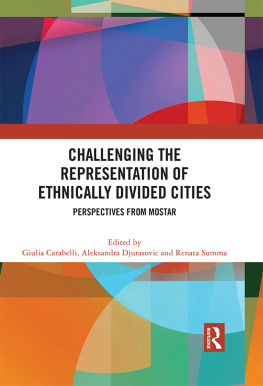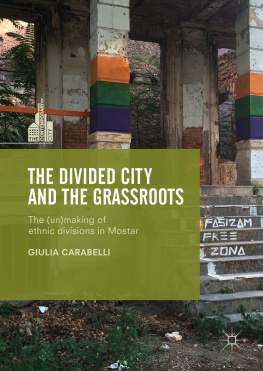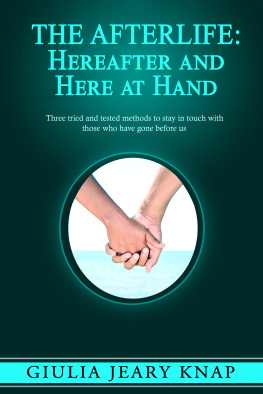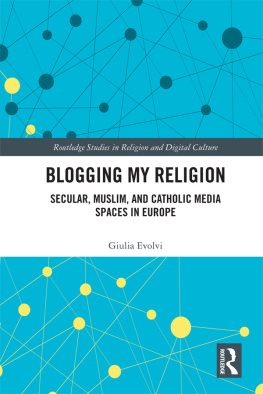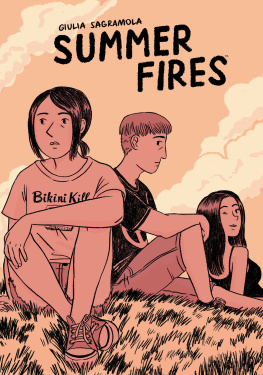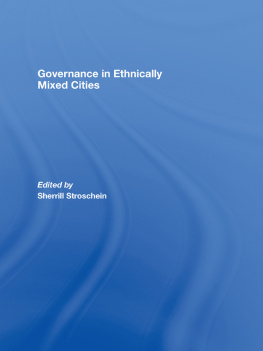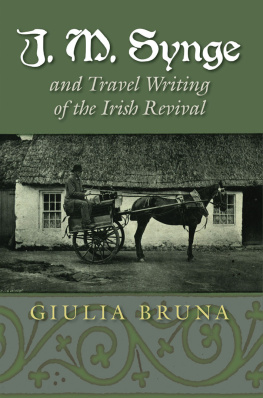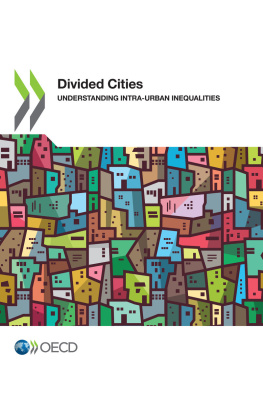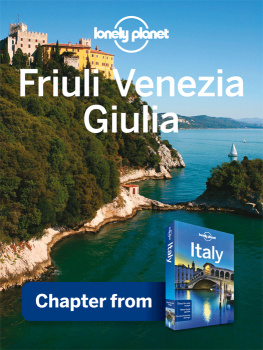Challenging the Representation of Ethnically Divided Cities
The book Challenging the Representation of Ethnically Divided Cities: Perspectives from Mostar questions the existing overrepresentation of Mostar as an ethnically divided city. While acknowledging existence of internal borders, the chapters in this book assert that they are not solid nor fixed and, by exploring how they become material or immaterial, the book offers a deeper understanding of the citys complex dynamics. Accordingly, the chapters in this book are attentive to how ethnic divides materialise or lose importance because of socio-political contingencies. Events, groups and spaces that promote reconciliation from the bottom-up is examined, not necessarily to assess their success and failures but rather to look at how they create networks, gain trust and form platforms that generate novel understandings of ethnic loyalties and party memberships.
Further, and drawing both on the empirical data and the theoretical reflections, this volume contributes to broader debates about divided cities by suggesting the need to engage with these cities in their complexities rather than reducing them to their ethno-national divisions. The book means to engage with socio-political and economic complexities in order to shed light on how ethnic conflicts and resulting spatial partitioning are often just the surface of much more complex dynamics that are far less easy to disentangle and represent.
The chapters in this book were originally published in Space and Polity.
Giulia Carabelli is urban and cultural sociologist interested in grassroots politics, art and the everyday life. She is the author of The Divided City and the Grassroots: The (Un)making of Ethnic Divisions in Mostar (2018).
Aleksandra Djurasovic is urban planner/geographer focusing on post-socialist, neoliberal and war-to-peace transitions in Southeast Europe. She is the author of Ideology, Political Transitions and the City: The Case of Mostar, Bosnia and Herzegovina (2016).
Renata Summa is researcher on international relations interested in borders, boundaries, mobility and everyday life. She is the author of Everyday Boundaries, Borders and Post Conflict Societies (forthcoming).
Challenging the Representation of Ethnically Divided Cities
Perspectives from Mostar
Edited by
Giulia Carabelli, Aleksandra Djurasovic and Renata Summa
First published 2021
by Routledge
2 Park Square, Milton Park, Abingdon, Oxon OX14 4RN
and by Routledge
605 Third Avenue, New York, NY 10158
Routledge is an imprint of the Taylor & Francis Group, an informa business
Chapters 25, 7 and 8 2021 Taylor & Francis
Chapter 1 2019 Giulia Carabelli, Aleksandra Djurasovic and Renata Summa. Originally published as Open Access.
Chapter 6 2019 Giulia Carabelli. Originally published as Open Access.
With the exception of Chapters 1 and 6, no part of this book may be reprinted or reproduced or utilised in any form or by any electronic, mechanical, or other means, now known or hereafter invented, including photocopying and recording, or in any information storage or retrieval system, without permission in writing from the publishers. For details on the rights for Chapters 1 and 6, please see the chapters Open Access footnotes.
Trademark notice: Product or corporate names may be trademarks or registered trademarks, and are used only for identification and explanation without intent to infringe.
British Library Cataloguing in Publication Data
A catalogue record for this book is available from the British Library
ISBN: 978-0-367-70724-8 (hbk)
ISBN: 978-0-367-70725-5 (pbk)
ISBN: 978-1-003-14767-1 (ebk)
Typeset in Minion Pro
by Newgen Publishing UK
Publishers Note
The publisher accepts responsibility for any inconsistencies that may have arisen during the conversion of this book from journal articles to book chapters, namely the inclusion of journal terminology.
Disclaimer
Every effort has been made to contact copyright holders for their permission to reprint material in this book. The publishers would be grateful to hear from any copyright holder who is not here acknowledged and will undertake to rectify any errors or omissions in future editions of this book.
Contents
Giulia Carabelli, Aleksandra Djurasovic and Renata Summa
Aleksandra Djurasovic
Renata Summa
Susan Forde
Sunana Laketa
Giulia Carabelli
Gustav Wollentz, Marko Barii and Nourah Sammar
Anja Bogojevi, Amila Puzi and Mela uljevi
The chapters in this book were originally published in Space and Polity, volume 23, issue 2 (August 2019). When citing this material, please use the original page numbering for each article, as follows:
Challenging the representation of ethnically divided cities: perspectives from Mostar
Giulia Carabelli, Aleksandra Djurasovic and Renata Summa
Space and Polity, volume 23, issue 2 (August 2019), pp. 116124
Divided cities as complex cities: transition and complexity in the city of Mostar
Aleksandra Djurasovic
Space and Polity, volume 23, issue 2 (August 2019), pp. 125139
Inventing places: disrupting the divided city
Renata Summa
Space and Polity, volume 23, issue 2 (August 2019), pp. 140153
Socio-spatial agency and positive peace in Mostar, Bosnia and Herzegovina
Susan Forde
Space and Polity, volume 23, issue 2 (August 2019), pp. 154167
The politics of landscape as ways of life in the divided city: reflections from Mostar, BosniaHerzegovina
Sunana Laketa
Space and Polity, volume 23, issue 2 (August 2019), pp. 168181
Love, activism, and the possibility of radical social change in Mostar
Giulia Carabelli
Space and Polity, volume 23, issue 2 (August 2019), pp. 182196
Youth activism and dignity in post-war Mostar envisioning a shared future through heritage
Gustav Wollentz, Marko Barii and Nourah Sammar
Space and Polity, volume 23, issue 2 (August 2019), pp. 197215
False stories from the history of Mostar
Anja Bogojevi, Amila Puzi and Mela uljevi
Space and Polity, volume 23, issue 2 (August 2019), pp. 216228
For any permission-related enquiries please visit:
www.tandfonline.com/page/help/permissions
Marko Barii is PhD candidate in Social Anthropology at the University of Kent. In his free time, Marko delivers free workshops primarily on activism, heritage and human rights, but also on religion and critical thinking. Currently, with his friends, he works on establishing a much needed Alternative Library in Mostar.

